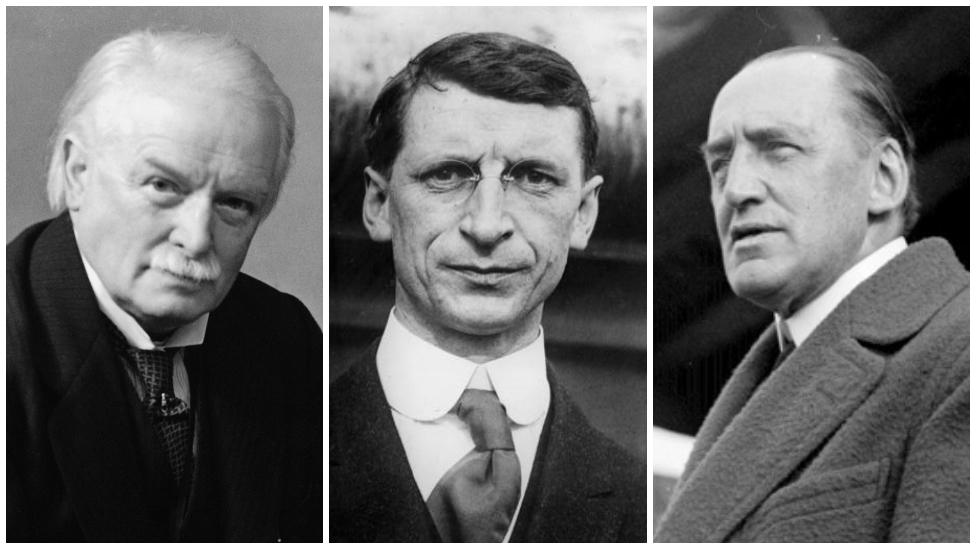NI 100: Why did Carson give up chance to be NI's first PM?
- Published
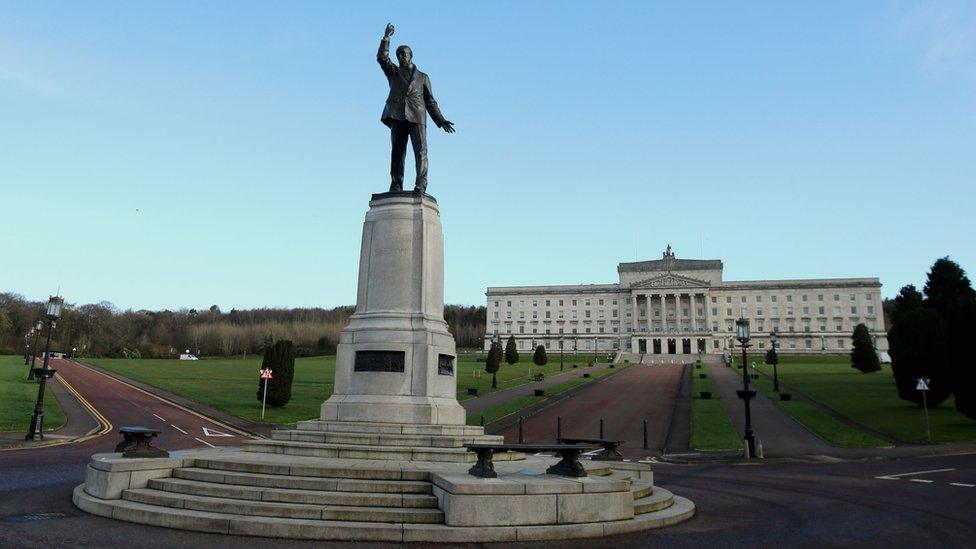
A 12ft statue of Sir Edward Carson was unveiled at Stormont in 1933
The course of Irish history changed 100 years ago with the decision of Sir Edward Carson to stand down from the unionist leadership and relinquish the chance to become Northern Ireland's first prime minister.
A century on, his great-grandson believes it was a mixture of personal and political factors which led to Carson's momentous decision, announced on 4 February 1921.
A large statue of Carson was erected at Stormont in spite of his reluctance to lead the new parliament in 1921.
His great-grandson, Toby Carson, points out that the veteran unionist leader was 66 years old at the time.
"He'd fought his battle. He wasn't young any more. He had a one-year-old son.
"He had a young wife and I really think he just felt that he'd done what he'd needed to do," said Mr Carson.
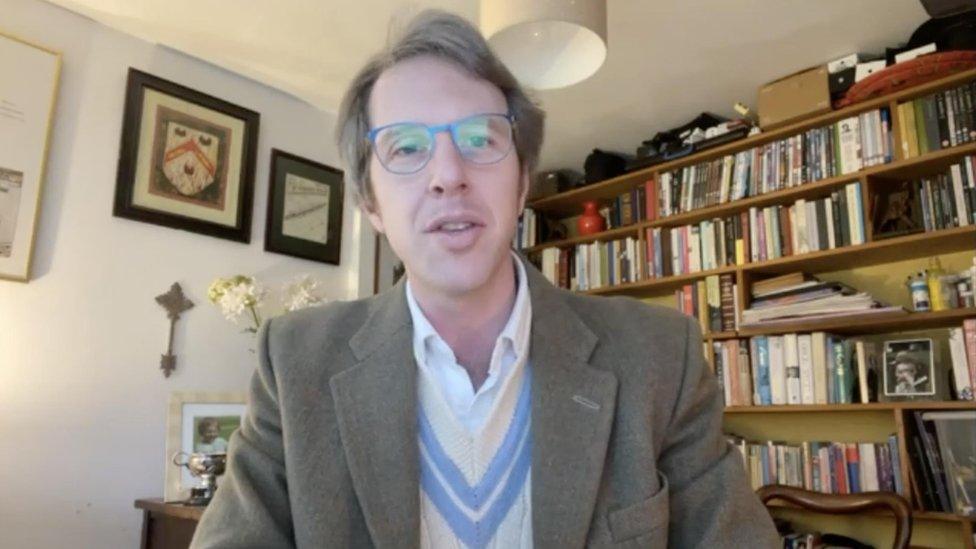
Toby Carson is a great-grandson of Sir Edward Carson
"On top of that, there was some disillusionment. He'd achieved huge amounts but he hadn't achieved what he'd always wanted, which was a united Ireland within the union."
Sir Edward Carson was born in Dublin in 1854 and was one of the most successful lawyers of his generation.
He became the face and voice of unionist opposition to home rule in 1912.
His great-grandson Toby, a teacher in his 40s from southern England, has studied Carson's career closely and recently visited Stormont to see the statue.
"He was able to rouse a crowd and contain a crowd, but that's a very different business to running a nation," said Mr Carson.
"He obviously saw himself as an Irishman but he didn't see himself as an Ulsterman."
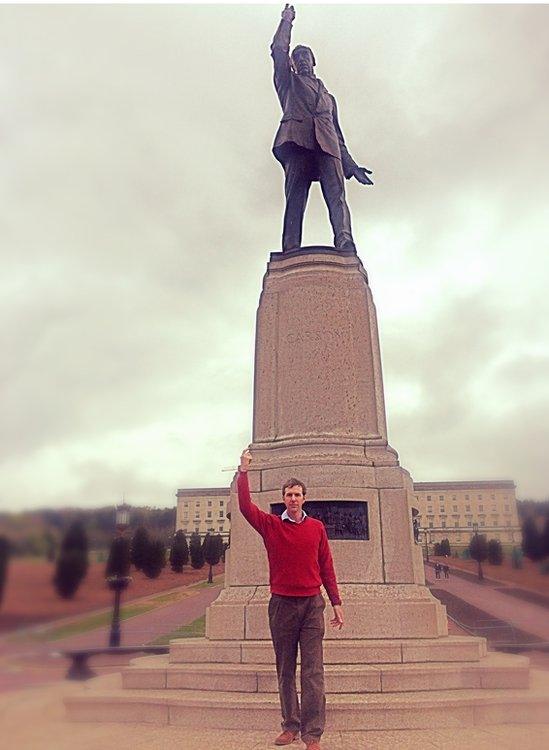
Toby Carson pictured underneath his great-grandfather's statue

Given Carson's hero status within unionism, it may seem surprising that he turned down the chance to become the first prime minister of Northern Ireland.
However, the historian Prof Paul Bew said that back in February 1921 the decision did not come as a shock, given that he was prominent figure in political and legal circles in London at the time.
"You always have to remember he was a southerner, he played Gaelic games as a child. He spoke Irish.
"There was kind of an emotional connection with the whole of Ireland in Carson's life which isn't there for many northern unionists," said Prof Bew.
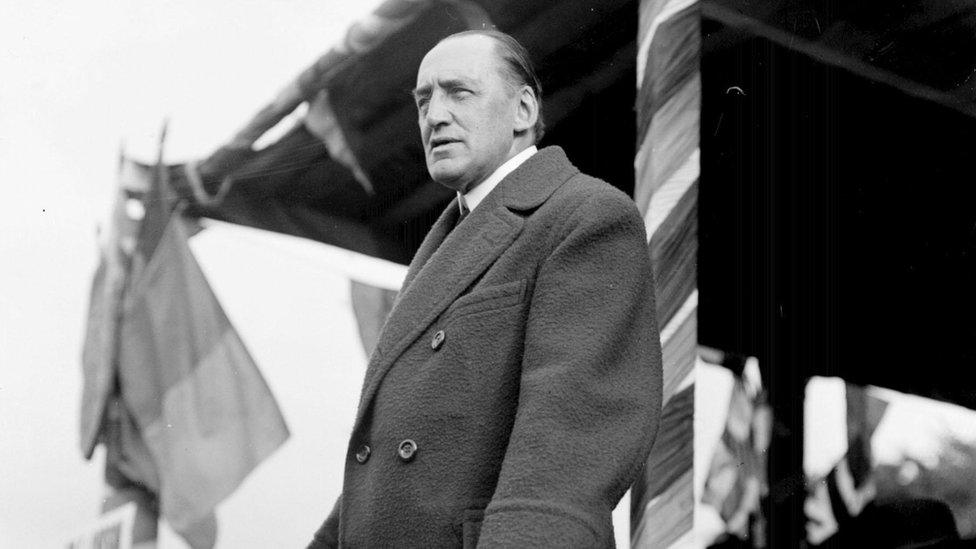
Sir Edward Carson speaking at an anti-home rule rally in 1913
"His whole approach is that it would be better if Ireland as a whole stayed within the union.
"For example, when he's a member of parliament in Westminster he's always voting for money to go to Mayo, even though there isn't a single unionist vote in Mayo.
"The idea is that the union spreads money out to the whole of the UK and is economically therefore the best thing for Ireland. In principle, he's an old-school unionist."
Prof Bew added: "Don't forget he is a big figure of London politics. He's been in Cabinet. He knows the worst he's going to become is a very senior figure in the legal system.
"So given all of these things, I don't think he even thought about it for a second, as an option, to actually be in the Northern Ireland parliament."
Carson announced his decision to stand down from the unionist leadership at a meeting of the Ulster Unionist Council.

The BBC News NI website has a dedicated section marking the 100th anniversary of the creation of Northern Ireland and partition of the island.
There are special reports on the major figures of the time and the events that shaped modern Ireland available at bbc.co.uk/ni100.
Year '21:You can also explore how Northern Ireland was created a hundred years ago in the company of Tara Mills and Declan Harvey.
Listen to the latest Year '21 podcast on BBC Sounds or catch-up on previous episodes.

In an extract from his speech, quoted the next day (5 February 1921) in the Irish News, he warned about making sure the new Northern Ireland parliament would work for everyone, not just Protestants.
"Let them see that the Catholic minority have nothing to fear from a Protestant majority," he said.
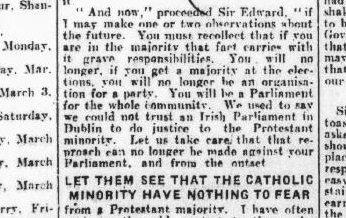
An extract of Carson's resignation speech from the Irish News

Carson's decision to step aside cleared the way for James Craig to become prime minister. He held the position for the next 20 years.
After his death in 1935, Carson was given a state funeral and was buried at St Anne's Cathedral in Belfast.
Related topics
- Published21 December 2020
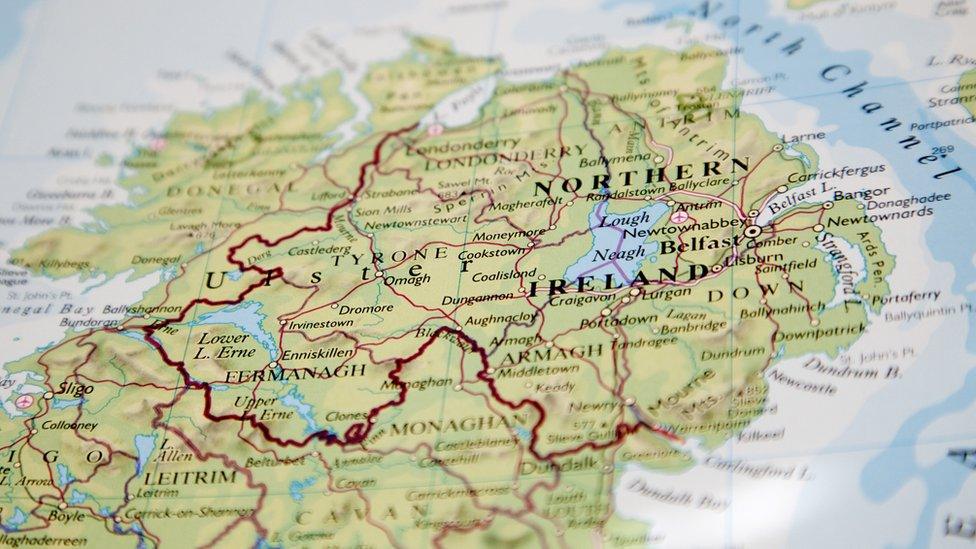
- Published21 December 2020
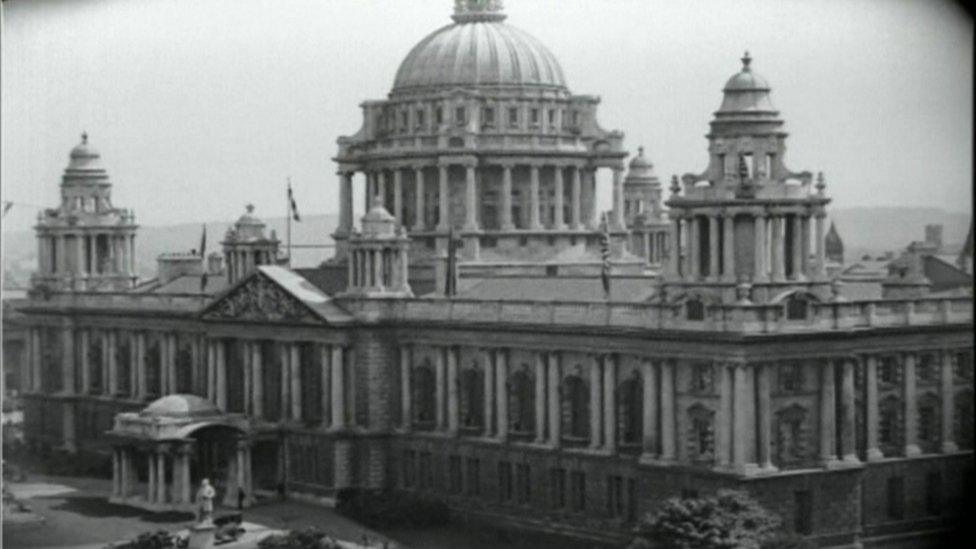
- Published21 December 2020
